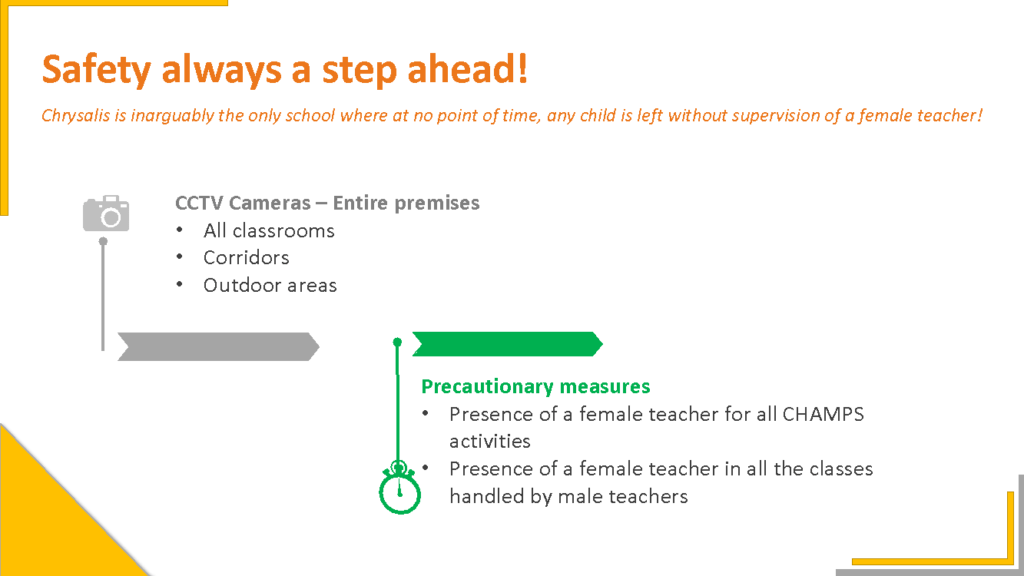
The Indian Parliament is the very best legislative body in the country, responsible for making laws, overseeing the govt, and representing the pastimes of the humans. It incorporates the homes of the Lok Sabha (House of the People) and the Rajya Sabha (Council of States). Both homes play important roles in the legislative technique, with awesome powers and capabilities.
The Lok Sabha, regularly referred to as the decreased residence of Parliament, consists of representatives proper away elected by using the people of India. It is the primary legislative frame responsible for drafting and passing criminal guidelines. The Lok Sabha individuals, referred to as Members of Parliament (MPs), constitute the various constituencies inside the path of the country. The Lok Sabha is presided over with the aid of manner of the Speaker, who is elected with the sources of its members.
The Rajya Sabha, known as the top house of Parliament, represents the states and union territories of India. Unlike the Lok Sabha, its contributors aren’t immediately elected through manner of human beings however, they’re elected employing the elected contributors of the State Legislative Assemblies. The Rajya Sabha is chaired by using way of the Vice President of India, the ex-officio Chairman of the house.
Key Differences Between Lok Sabha & Rajya Sabha
- Method of Election: The members of the Lok Sabha are immediately elected by the people of India through standard elections, while the individuals of the Rajya Sabha are elected by employing elected individuals from the state legislative assemblies.
- Representation: The Lok Sabha represents the human beings of India while the Rajya Sabha represents the states and union territories.
- Term of office: The term of office of a member of the Lok Sabha is 5 years, concurrent with the term of a member of the Rajya Sabha is six years.
- Powers: The Lok Sabha has greater powers on cash subjects, including the creation and passage of money bills. On the other hand, the Rajya Sabha has the power to propose amendments to cashless bills and fulfils a broad role in reviewing and revising legislation.
Introduction to the Indian Parliament
The Indian Parliament is India’s best legislative frame, embodying the standards of democracy and federalism. Comprising two homes, the Lok Sabha and the Rajya Sabha, it performs an essential function in lawmaking, governance, and representing the numerous interests of the Indian populace. The Lok Sabha, regularly termed the decreased residence, consists of individuals immediately elected by human beings, representing numerous constituencies national. It holds great powers, specifically in topics of finance and governance.
What is Lok Sabha
Lok Sabha is the lower house of the Indian Parliament, comprising elected representatives from across the state. It holds big functions consisting of legislative authority, such as passing payments, discussing countrywide issues, and representing human beings’s worries. As the House of the People, it guarantees democratic illustration, enacts laws, and oversees the authorities’s movements. Lok Sabha participants are immediately elected through citizens via widespread elections, reflecting the range of India’s populace. It holds the strength of economic manipulation, especially regarding budgetary topics, and can introduce money bills. Lok Sabha’s choices are vital in shaping India’s governance and regulations.
What is RajyaSabha
Rajya Sabha, or the Council of States, is one of the two houses of the Indian Parliament, the other being the Lok Sabha. It represents India’s states and union territories and is essential for federalism. The Rajya Sabha ensures a voice for states’ hobbies in national affairs, fostering cooperative federalism. Its participants are elected in a roundabout way with the aid of kingdom legislatures, serving staggered six-year terms, ensuring continuity. Rajya Sabha holds enormous powers, such as legislative, financial, and oversight functions. It evaluates and shows amendments to bills, represents states’ views on countrywide rules and performs an important function within the parliamentary system’s checks and balances.
Key Distinguish Between Lok Sabha & Rajya Sabha
| Parameter | Lok Sabha | Rajya Sabha |
| Members | Directly elected using residents of India | Indirectly elected by using kingdom legislatures |
| Process to Elect | Through popular elections | Through proportional representation through state MLAs |
| Age Criteria | Minimum 25 years for eligibility | Minimum 30 years for eligibility |
| Strength of the House | Maximum 552 members | Maximum 250 participants |
| Composition | Represents the people of India | Represents states and UTs of India |
| Term | 5 years | 6 years |
| Chair of the House | Speaker elected by members | Vice President of India, who is ex officio Chairman |
| States Representation | Represents constituencies within states | Represents states as an entire |
| Union Territories | Have limited representation (most 20 individuals) | Have representation (most 2 members) |
| Powers and Functions | The primary legislative house passes payments and budgets | Represents states’ interests, reviews legislation |
| Role in Budget | Can introduce and amend cash bills | Can suggest amendments, but cannot initiate |
| Authority over Bills | Has very last authority on most payments | Can suggest amendments, can also put off bills |
| Role in Federalism | Represents people’s pursuits | Represents states’ interests |
Powers of Lok Sabha
The Lok Sabha, due to the fact the lower residence of the Indian Parliament, powers important to the functioning of the us of a. Some of its key powers consist of:
- Passing Money Bills: The Lok Sabha has exceptional authority over cash bills, which cope with economic topics which include taxation, government expenditure, borrowing, and so forth. It can introduce, amend, or reject coins bills, and the Rajya Sabha cannot amend them however can only propose modifications.
- Budget Approval: The Lok Sabha plays a most important position within the budgetary system. It approves the yearly budget supplied using the use of the authorities, which includes the allocation of the budget to incredible sectors and schemes. It also examines the budgetary proposals and may make adjustments before approval.
- Legislative Authority: The Lok Sabha is the number one legislative body chargeable for enacting legal guidelines and amendments. It debates and votes on payments proposed with the resources of the government or non-public people, and an invoice need to pass through the Lok Sabha to turn out to be regulation.
- National Emergency Declaration: On the occasion of a country-extensive emergency, the Lok Sabha holds the authority to approve the proclamation of emergency via the President. Such emergencies can be declared because of war, outside aggression, or armed rebellion, and the Lok Sabha’s approval is vital.
- Oversight and Accountability: The Lok Sabha carries activities oversight skills with the aid of way of scrutinizing the authorities’s moves, policies, and expenditures via numerous parliamentary mechanisms together with question hours, debates, discussions, and parliamentary committees. It guarantees executive duty to the legislature and the public.
Powers of Rajya Sabha
The Rajya Sabha, or Council of States, wields several huge powers in the Indian parliamentary machine. These powers are enshrined in diverse acts and articles of the Constitution:
- Legislative Powers: Rajya Sabha has the same legislative powers as the Lok Sabha, besides coins bills. It can introduce, debate, and bypass payments on any trouble except cash bills. Article 109 and Article 110 of the Indian Constitution delineate the legislative powers of the Rajya Sabha.
- Reviewing and Amending Bills: While the Rajya Sabha can’t initiate money payments, it can advocate amendments to them. It also can examine and advise modifications to other payments passed by way of the Lok Sabha. This strength ensures a radical exam of regulations before enactment.
- Representation of States’ Interests: As the representative of states and union territories, the Rajya Sabha performs an essential function in safeguarding their interests. It guarantees that national tips recollect various nearby perspectives, fostering cooperative federalism.
- Appointment of Key Officials: The Rajya Sabha, at the side of the Lok Sabha, plays a position in the appointment of key officials, together with the Comptroller and Auditor General (CAG), Attorney General, and Chief Election Commissioner.
- Constitutional Amendments: Certain constitutional amendments require the approval of each house of Parliament, which includes the Rajya Sabha. Amendments to tremendous critical factors of the Constitution, together with those associated with federalism or the essential rights of citizens, necessitate the consent of the Rajya Sabha.
Conclusion
Ultimately, the Lok Sabha and Rajya Sabha are pivotal chambers of the Indian Parliament, each with wonderful roles and powers. While the Lok Sabha represents the people at once via trendy elections and holds huge authority in topics consisting of money payments, the Rajya Sabha ensures national representation and performs a critical position in reviewing rules and safeguarding regional hobbies. Together, they uphold the ideas of democracy, federalism, and exams and balances, making sure that numerous perspectives are considered in India’s legislative procedure.
Begin a journey toward distinction and insight at Chrysalis High School, where we honor and nurture the unique capabilities of each student. Our school is committed to promoting comprehensive development, enabling students to excel in academic, social, and emotional spheres. With an engaging curriculum and innovative teaching strategies, we prepare our students to confidently face the modern world’s demands with skill and certainty. Our dedicated faculty, advanced infrastructure, and supportive educational setting ensure a thriving atmosphere for every learner. Experience the powerful effect of education with us at Chrysalis High School.
FAQ:
Lok Sabha plays an important position in forming the Indian government by electing the Prime Minister and overseeing the appointment of the Council of Ministers.
Lok Sabha and Rajya Sabha engage throughout the legislative process through the passing of bills, where Lok Sabha initiates and debates payments, even as Rajya Sabha critiques, indicates amendments, and passes or rejects them.
Yes, Lok Sabha and Rajya Sabha members may be from unique political events, reflecting the range of India’s political landscape.
Rajya Sabha represents the chasing of Indian states by offering a platform for states’ voices to be heard in country-wide rules and coverage discussions, ensuring federal stability in governance.


